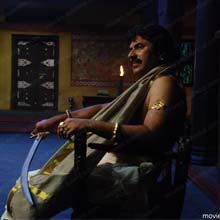The Bhagavad Gita
 The Bhagavad Gita ("Song of God") is one of the most important Hindu scriptures. It is revered as a sacred scripture of Hinduism, and considered as one of the most important philosophical classics of the world. The Bhagavad Gita comprises 700 verses, and is a part of the Mahabharata.
The Bhagavad Gita ("Song of God") is one of the most important Hindu scriptures. It is revered as a sacred scripture of Hinduism, and considered as one of the most important philosophical classics of the world. The Bhagavad Gita comprises 700 verses, and is a part of the Mahabharata.
The content of the Gita is the conversation between Krishna and Arjuna taking place on the battlefield before the start of theKurukshetra War. Responding to Arjuna's confusion and moral dilemma, Krishna explains to Arjuna his duties as a warrior and prince and elaborates on different Yogic and Vedantic philosophies, with examples and analogies. This has led to the Gita often being described as a concise guide to Hindu philosophy and also as a practical, self-contained guide to life
The discourse on the Bhagavad Gita begins before the start of the climactic battle at Kurukshetra. It begins with the Pandava prince Arjuna, as he becomes filled with doubt on the battlefield. Realizing that his enemies are his own relatives, beloved friends, and revered teachers, he turns to his charioteer and guide, Krishna, for advice.
In summary the main philosophical subject matter of the Bhagavad-gita is the explanation of five basic concepts or "truths":
Ishvara (The Supreme Controller)
Jiva (Living beings/the soul)
Prakrti (Matter)
Dharma(Duty)
Kaala(Time)
Mahatma Gandhi writes, "The object of the Gita appears to me to be that of showing the most excellent way to attain self-realization" and Gandhi writes that this can be achieved by selfless action—"By desireless action; by renouncing fruits of action; by dedicating all activities to God, i.e., by surrendering oneself to Him body and soul." Gandhi called Gita, The Gospel of Selfless Action.
Readers You can Download Malayalam translation of Bagavat Gita PDF here, Click the Link below to download










0 comments:
Post a Comment